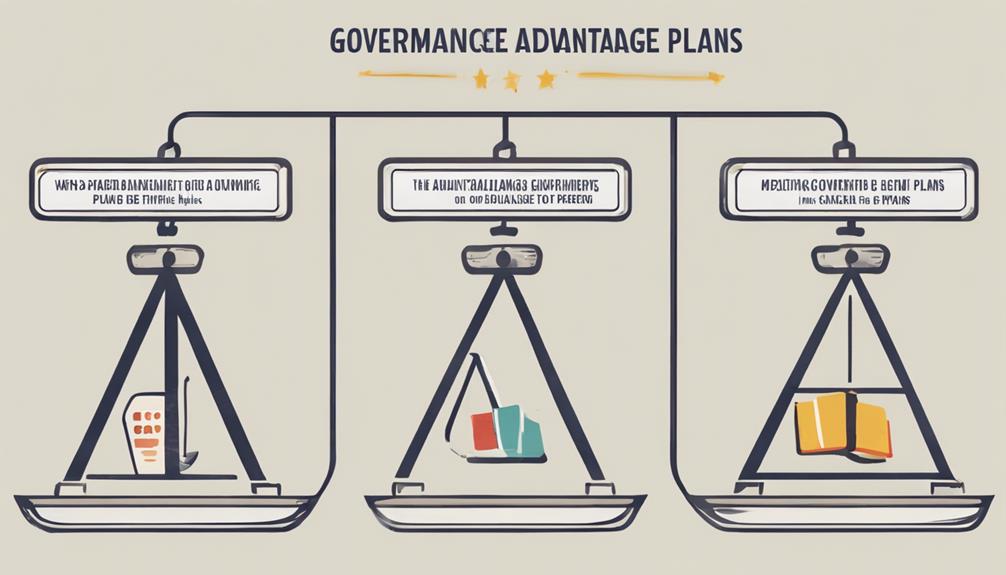In the field of gerontology and caregiving, the importance of preventing health issues over relying on numerous treatments is often emphasized.
When it comes to navigating Medicare Non-Medical Home Care for aging in place, understanding the intricacies is key.
Exploring the nuances of available services and financial assistance can pave the way for a smoother journey through the later stages of life.
Let's uncover the essential aspects that can help us make informed decisions about our future well-being and independence at home.
Key Takeaways
- Medicare does not cover non-medical home care services.
- Medicaid and private insurance may offer financial assistance.
- Physician-reviewed plan is essential for qualifying for Medicare home health care.
- Emphasis on autonomy, dignity, and personalized care plans in in-home services.
Medicare Coverage for Non-Medical Home Care
Unfortunately, Medicare typically doesn't cover non-medical home care services for individuals needing assistance with daily living activities and household tasks. This limitation can be challenging for those looking to age in place while requiring non-medical support.
Medicare primarily focuses on medical necessity when determining coverage for home care services, which often excludes non-medical assistance. As a result, many individuals find themselves having to pay for non-medical home care out-of-pocket, turning to resources like Medicaid or private insurance for financial assistance.
Understanding this distinction between medical and non-medical care is crucial for planning and financing the ability to age in place successfully. By recognizing the gaps in Medicare coverage for non-medical home care, individuals and families can proactively plan for their long-term care needs and explore alternative funding options to ensure a safe and comfortable living environment while aging in place.
Benefits of Aging in Place

Choosing to age in place offers seniors a multitude of benefits that contribute to their overall well-being and quality of life. Here are some reasons why aging in place can be so beneficial for seniors:
- Increased Independence: Aging in place allows seniors to maintain control over their daily routines and decision-making processes, promoting a sense of autonomy and self-sufficiency.
- Enhanced Social Connections: Remaining in familiar surroundings fosters opportunities for seniors to stay connected with friends, family, and their community, reducing feelings of loneliness and isolation.
- Community Involvement: By aging in place, seniors can continue participating in local events, clubs, and activities that provide a sense of purpose and belonging.
- Improved Emotional and Physical Well-being: Studies suggest that seniors who age in place often report higher levels of emotional well-being and satisfaction, leading to better overall mental health. Additionally, maintaining a familiar environment can contribute to better physical health outcomes and decreased healthcare costs compared to alternative residential options.
Qualifying for Medicare Home Health Care
Understanding the criteria for qualifying for Medicare home health care is essential for seniors seeking assistance with their healthcare needs. To be eligible for Medicare home health care coverage, services must be part of a physician-reviewed plan. Individuals must also have difficulty leaving home without assistance, and appointments should be directly related to their home health care needs.
The recommendations of a physician play a crucial role in determining the extension of Medicare coverage for home health care services. It's important to note that there are limitations on the number of skilled nursing hours and days per week covered under Medicare for home health care.
Understanding In-Home Care Services

As we explore the realm of in-home care services, it becomes evident that these essential services encompass companion care, personal care, and skilled nursing services tailored to support older adults with their daily needs. In-home care services aren't just about meeting physical requirements; they're about providing holistic support that nurtures the well-being of seniors.
Here are some key points to consider:
- Daily Activities: In-home care services assist older adults with daily tasks such as dressing, bathing, meal preparation, and household chores.
- Medication Management: Professional caregivers can help seniors manage their medications, ensuring they take the right doses at the right times.
- Mobility Assistance: Support with mobility is crucial for seniors to move around safely, preventing falls and promoting independence.
- Personalized Care Plans: Individualized care plans are crafted to address the unique needs and preferences of each senior, fostering a sense of autonomy and dignity.
Financial Assistance for Home Care
Exploring financial assistance options for home care services can provide crucial support for individuals seeking to maintain independence and quality of life as they age. For those eligible, Medicaid offers coverage for non-medical home care services based on income and need.
Veterans benefits present another avenue for financial assistance, catering to qualified veterans requiring such services. Long-term care insurance stands as a valuable resource, helping policyholders cover the costs associated with non-medical home care services.
In cases where other options aren't available, personal funds and savings can be utilized to pay for these essential services. Additionally, certain private insurance plans may include coverage for non-medical home care services, subject to the specific policy terms and conditions.
Frequently Asked Questions
Does Medicare Pay for Home Assistant With Medicare?
No, Medicare doesn't pay for home assistants for non-medical care. These services, such as help with daily tasks and household chores, aren't covered by Medicare.
Medicare only covers medically necessary services from certified home health agencies. You may need to pay for non-medical home care out-of-pocket or through long-term care insurance.
It's vital to understand these distinctions when planning for aging in place.
Does Medicare Part B Cover Caregivers?
No, Medicare Part B doesn't cover caregivers. It focuses on medically necessary services, not non-medical home care provided by caregivers.
For assistance with activities of daily living like bathing, dressing, and meal preparation, individuals may need to explore other options such as private pay, long-term care insurance, or Medicaid.
It's important to plan ahead and consider different avenues for non-medical home care coverage.
What Is the Difference Between Home Health Care and Home Care?
Sure!
Home health care involves skilled medical services like nursing and therapy, covered by Medicare with a doctor's certification. In contrast, home care provides non-medical assistance like meal prep and companionship, often paid for out of pocket.
The main distinction is the level of medical expertise offered. Home health care focuses on medical needs, while home care centers on daily activities.
Both options aim to support individuals in different aspects of their well-being.
What Happens if Elderly Person Has No One to Care for Them?
If an elderly person has no one to care for them, it can be a challenging situation. Seeking community resources, such as adult day care programs or assistance from a geriatric care manager, can provide vital support.
Medical alert systems offer emergency assistance, and social services or local agencies may also offer guidance and support for seniors without a caregiver.
It's essential to explore these options to ensure the well-being and safety of our elderly loved ones.
Conclusion
In conclusion, planning for aging in place with Medicare non-medical home care is essential for maintaining independence and well-being.
Take, for example, Mary, a 75-year-old widow who was able to receive assistance with daily tasks through Medicare home health care services, allowing her to stay in the comfort of her own home and maintain her sense of autonomy.
By exploring available resources and support services, individuals like Mary can age gracefully in their familiar surroundings.









